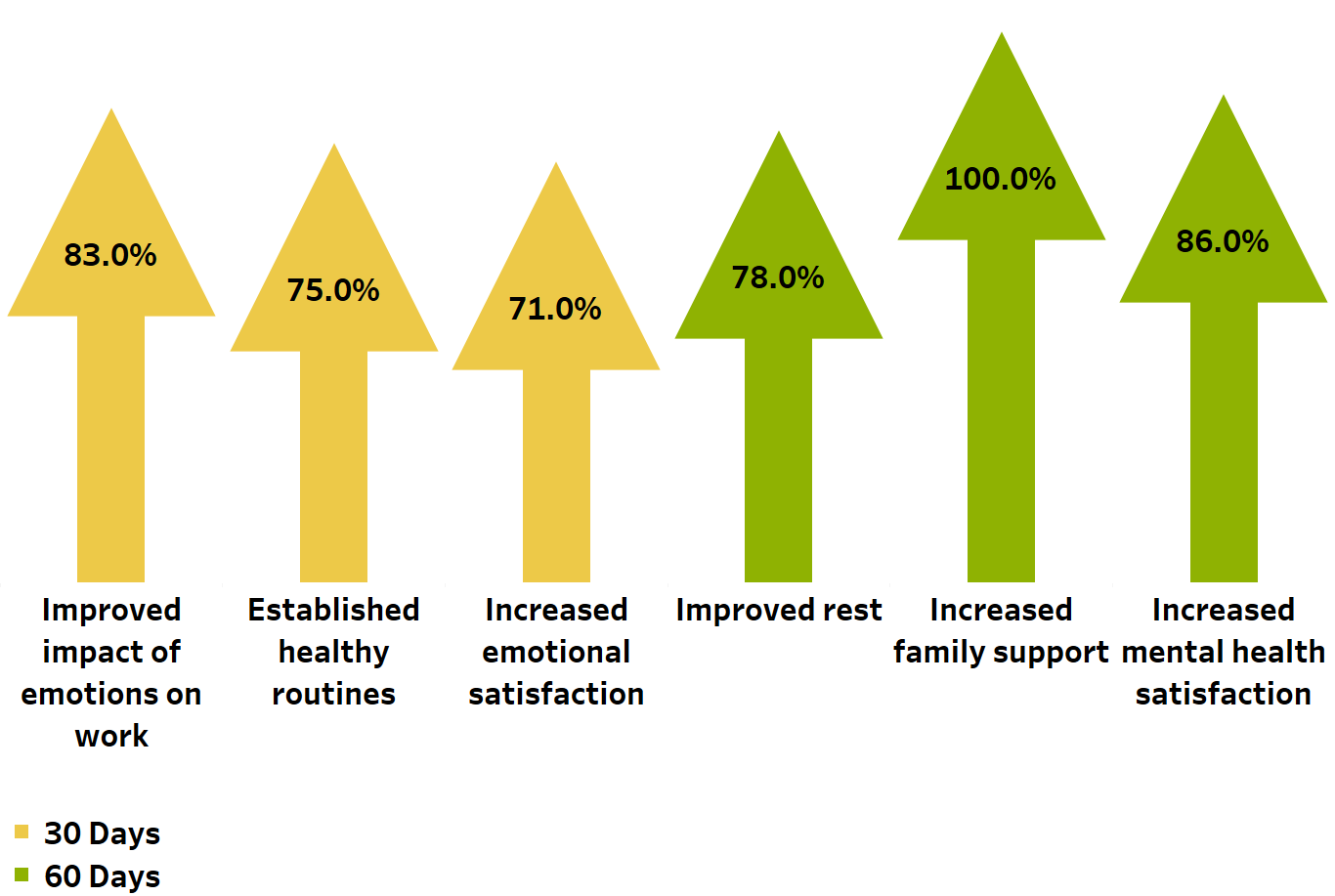Data drop: Loved ones & compassion fatigue

May 28, 2019
This month's data drop is 26%.
When using the generally accepted presumption that one person’s behavior affects four to six others, McIntyre (2004) estimates 14 to 68% of the U.S. may be affected by someone’s addiction.1 Since Jan. 1, 2019, 26% of our newly enrolled members are loved ones (LOs). Our LO peer coaches work with members to prioritize their own wellness while caring for someone struggling with addiction.
Understanding of compassion fatigue in family caregivers is limited, and research on the impact of caring for a loved one with the disease of addiction is basically non-existent. In general, family caregiver roles for someone with a chronic, serious health condition may include providing emotional support, completing household chores, handling financial matters, providing transportation, accompanying the recipient to medical appointments and serving as the patient advocate and care coordinator.2 The Family Caregiver Alliance (2006) reported that family caregivers are at risk for higher rates of depression, high levels of stress and frustration, worse health, increased risk of heart disease, lower levels of self-care and increased mortality when compared to non-caregivers.3
FIT peer coaches help our LO members by providing them with the tools to better support those they care about and get well themselves. LO members learn about addiction and how to improve communication, model and encourage change, establish healthy boundaries and motivate others toward wellness.
When a LO member enrolls in Face It TOGETHER (FIT) coaching, nearly half (44%) indicate they’re unhappy with their emotions or feelings. In addition, 36% don't feel rested when they wake up. Almost one-third say their emotions are interfering with their work and they're not getting emotional support they need from their families.
After participating in peer coaching sessions for 30 days, 71% of our LO members are more satisfied with their emotions or feelings; 83% feel their emotions are no longer interfering with their work; and 75% have established healthy routines. After 60 days, all of our members report they now feel supported emotionally by their families, 86% are more satisfied with their mental health; and 78% now wake up feeling rested and refreshed.

Change, especially lasting change, takes time. Our LO peer coaches are well aware of the need to practice self-care during this period of change; they work with our members to establish healthy routines as caregivers. Check out this blog to learn more about the importance of patience and self-care.
1. McIntyre JM. Family Treatment of Substance Abuse. In: Straussner SLA, editor. Clinical work with substance-abusing clients. 2nd ed. Guilford Press; 2004. p 237-63
2. Reinhard, S. C., Feinberg, L. F., Choula, R., & Houser, A. (2015). Valuing the invaluable: 2015 update.Insight on theIssues,104, 89-98
3. FamilyCaregiver Alliance (2006). Caregiver health.https://www.caregiver.org/caregiver-health
